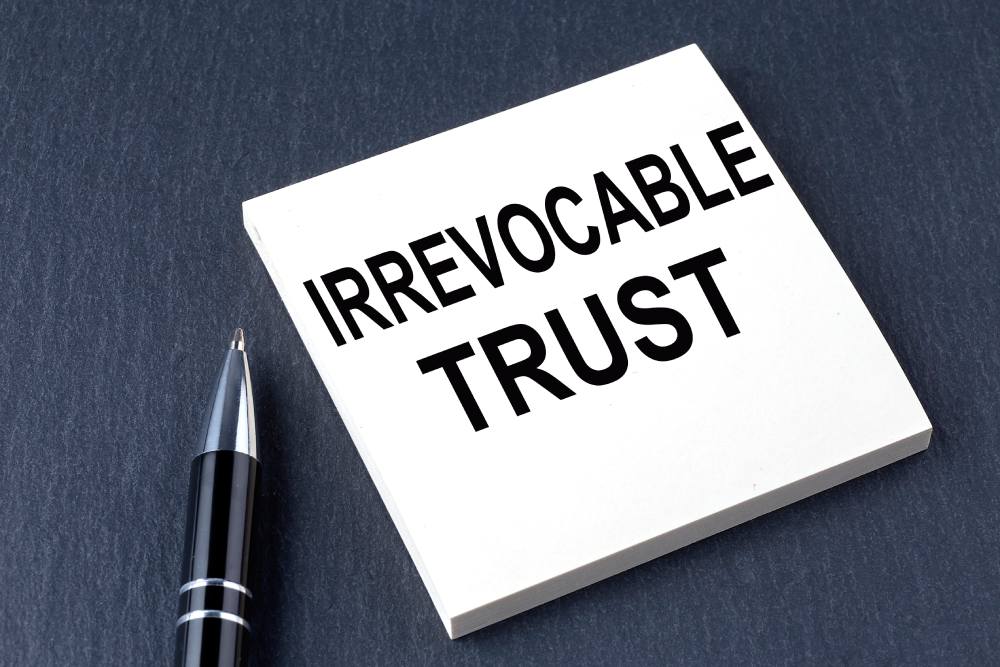Divorce can be a difficult process, especially when it comes to dividing assets. If you have a trust, you may be wondering what happens to it during a divorce. Understanding how a trust works in divorce proceedings is important for protecting your assets and ensuring that your wishes are carried out.
We will explore how divorce affects trusts and what steps you can take to protect your assets. We’ll also look at how tools like a Nevada asset protection trust, along with custody and escrow services can help safeguard your assets.
Trusts and Divorce: A Basic Overview
A trust is a legal setup in which assets are managed by one party for the advantage of another. The individual who establishes the trust is referred to as the grantor. The trustee is responsible for managing the assets, while the beneficiaries are the individuals or organizations designated to receive them.
When a marriage ends, the court typically divides marital property between the spouses. This can include any trust assets if they are considered marital property. However, if the trust is established with separate assets, it may remain outside the division of property.
Marital vs. Separate Property in Divorce
A key factor in how a trust is handled during divorce is whether its assets are classified as marital property or separate property.
- Marital Property: This includes anything acquired during the marriage. If a trust is funded with marital assets, it will likely be divided during divorce proceedings.
- Separate Property: Property owned before the marriage is usually considered separate property. If the trust is funded with separate property, the assets may remain outside the divorce settlement.
However, it is important to note that the way a trust is structured can affect whether it is treated as marital or separate property.
Trusts Created Before Marriage
Trusts established before marriage are generally considered separate property. If a trust was funded with assets owned before the marriage, it is likely that those assets will not be divided during the divorce.
However, things can become more complicated if the trust was changed or funded with marital property during the marriage. For example, if the grantor adds marital assets to the trust after the marriage, those assets could be considered marital property and may be subject to division in the divorce.
Trusts Created During the Marriage
If a trust is established during the marriage and funded with marital assets, it is considered marital property. This means that the trust will likely be divided during the divorce. The court can order the assets in the trust to be divided, or the court may create a new trust to divide the assets fairly.
In cases where the trust is contested, the court can decide how the assets in the trust will be distributed. The terms of the trust may also come into play during this process.
How a Nevada Asset Protection Trust Can Help
A Nevada asset protection trust is a unique type of trust that offers greater protection for assets. This type of trust is set up to protect assets from creditors, lawsuits, and other legal actions. In some cases, it can also protect assets from being divided during a divorce.
It is important to note that for a Nevada asset protection trust to be effective, it must be established correctly and meet all of Nevada’s legal requirements. If the court believes that assets were placed in the trust with the intent to hide them from a spouse during a divorce, the court may still order the assets to be divided.
That said, a Nevada asset protection trust can be a powerful tool to protect your wealth. This type of trust is especially useful for individuals who want to make sure that their assets are not impacted by divorce or other legal issues.
The Role of Custody and Escrow Services in Divorce
In some divorces, trust assets are held through custody and escrow services. These services make sure that the assets are securely held while the divorce proceedings are underway. An escrow agent holds the assets and makes sure they are distributed according to the divorce settlement or trust agreement.
Custody and escrow services are especially important in cases where assets are complex or highly valuable. They help prevent the misuse of assets during the divorce process and can offer additional protection for both spouses.
Steps to Protect Your Trust in Divorce
If you are concerned about what might happen to your trust during a divorce, there are several steps you can take to protect your assets.
- Review Your Trust: Before a divorce, it is important to review your trust. Make sure that the trust is set up properly and that it reflects your current wishes. A legal professional can help you understand how your trust will be treated in the divorce.
- Update Your Trust: If your trust was created before marriage, it might be time to update it. Changing the beneficiaries or terms of the trust after the divorce can make sure that your wishes are honored.
- Use a Prenuptial or Postnuptial Agreement: If you are concerned about the future of your trust, a prenuptial or postnuptial agreement can help protect your assets in the event of a divorce. These agreements specify how assets, including trusts, will be divided.
- Consider a Nevada Asset Protection Trust: If you are worried about the potential for divorce or other legal matters, a Nevada asset protection trust may be a good option to consider. This type of trust can help protect your assets from being divided in a divorce.
The Importance of Legal Guidance
Divorce and trust matters can be complicated, especially when there are significant assets at stake. It is always a good idea to work with a legal professional who specializes in family law and trusts. They can help you navigate the complexities of dividing trust assets and make sure that your interests are protected.
By working with an experienced attorney, you can better understand how your trust will be treated in a divorce and take steps to protect your assets.
When going through a divorce, it is important to understand how your trust will be affected. Trusts that are funded with marital assets are subject to division, while those funded with separate property may remain outside the divorce proceedings. However, things can get complicated, and legal protections like a Nevada asset protection trust may help shield your assets.
If you are concerned about how your trust will be treated in a divorce, it is important to seek legal advice and take steps to protect your assets. For those who need assistance managing trust-related issues during a divorce, Nevada Trust Company offers expert services, including custody and escrow services, to make sure that your assets are handled appropriately.



